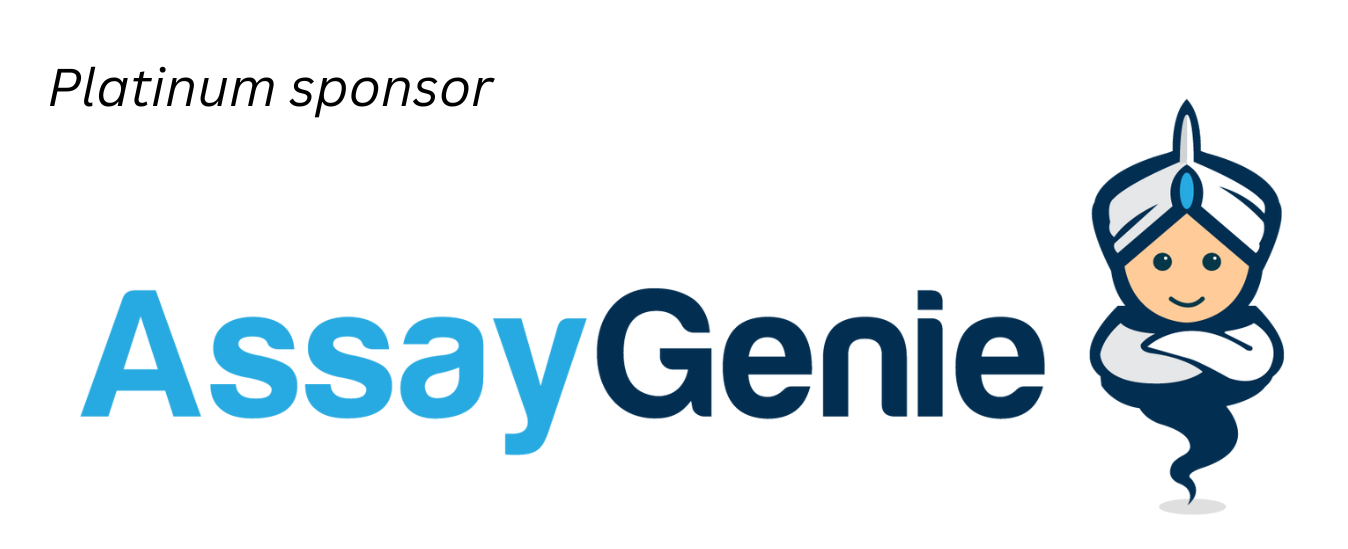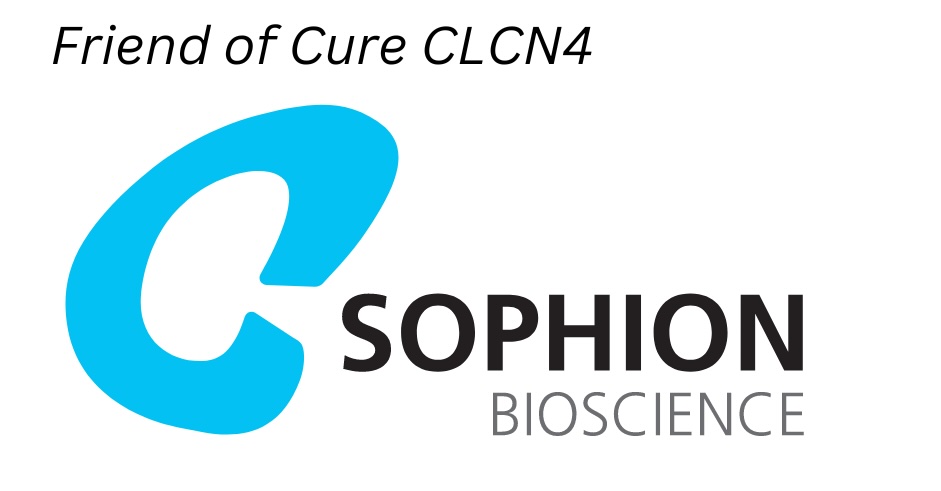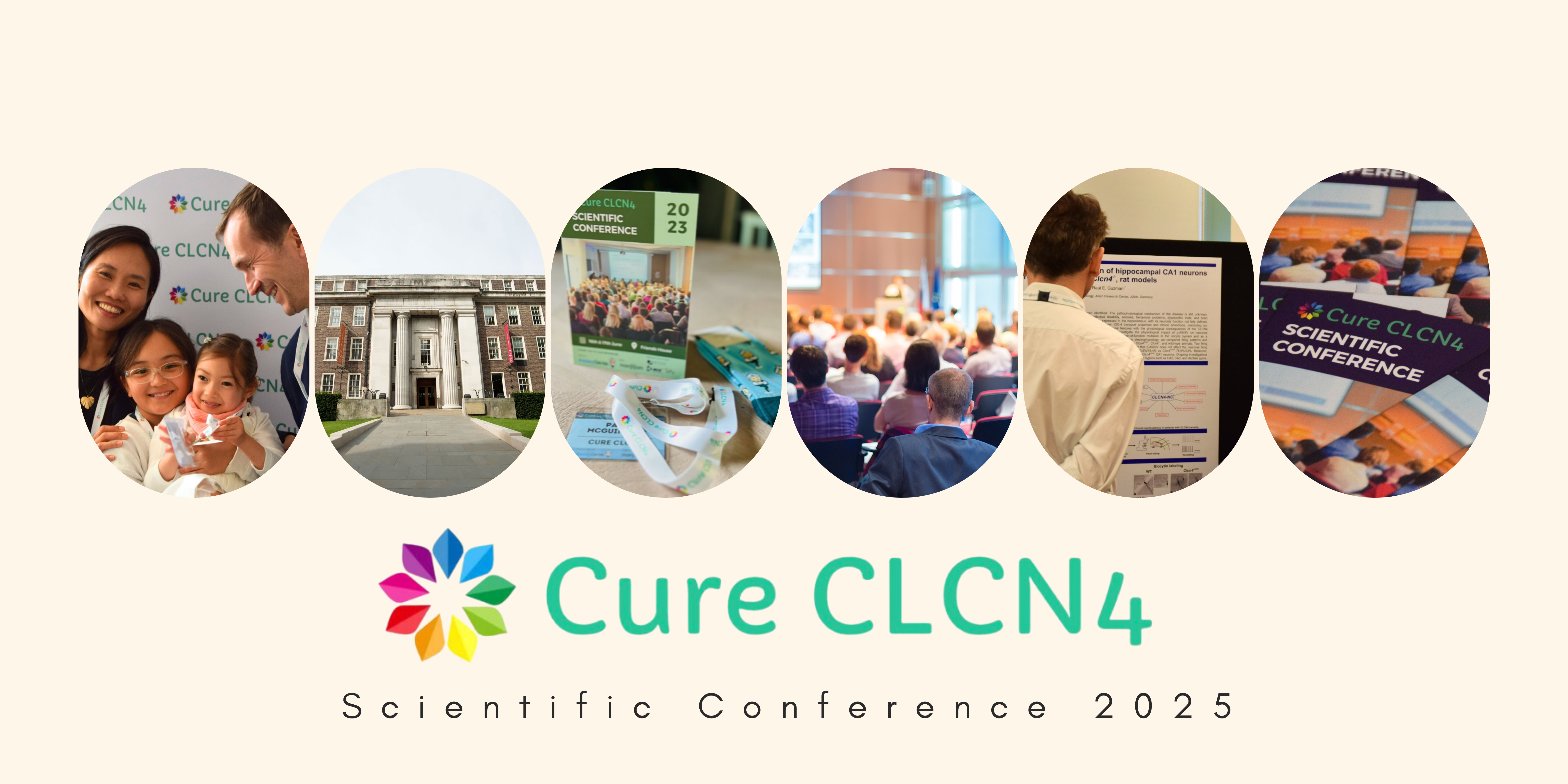
Welcome to the 2025 Cure CLCN4 Scientific Conference! Join researchers, clinicians, and advocates from around the world as we share the latest advancements and explore new horizons in CLCN4-related neurodevelopmental condition.
Conference highlights
• Dates: Monday 19th & Tuesday 20th May, 2025.
• Venue: Friends House, London, UK. Additional information on transportation, accommodations nearby, and other logistics is available here.
• Format: This year’s conference will continue to be available both in-person and online to accommodate global participation.
Registration
• Click here to register for the event. Registration for in-person attendance closes 5th May.
Program
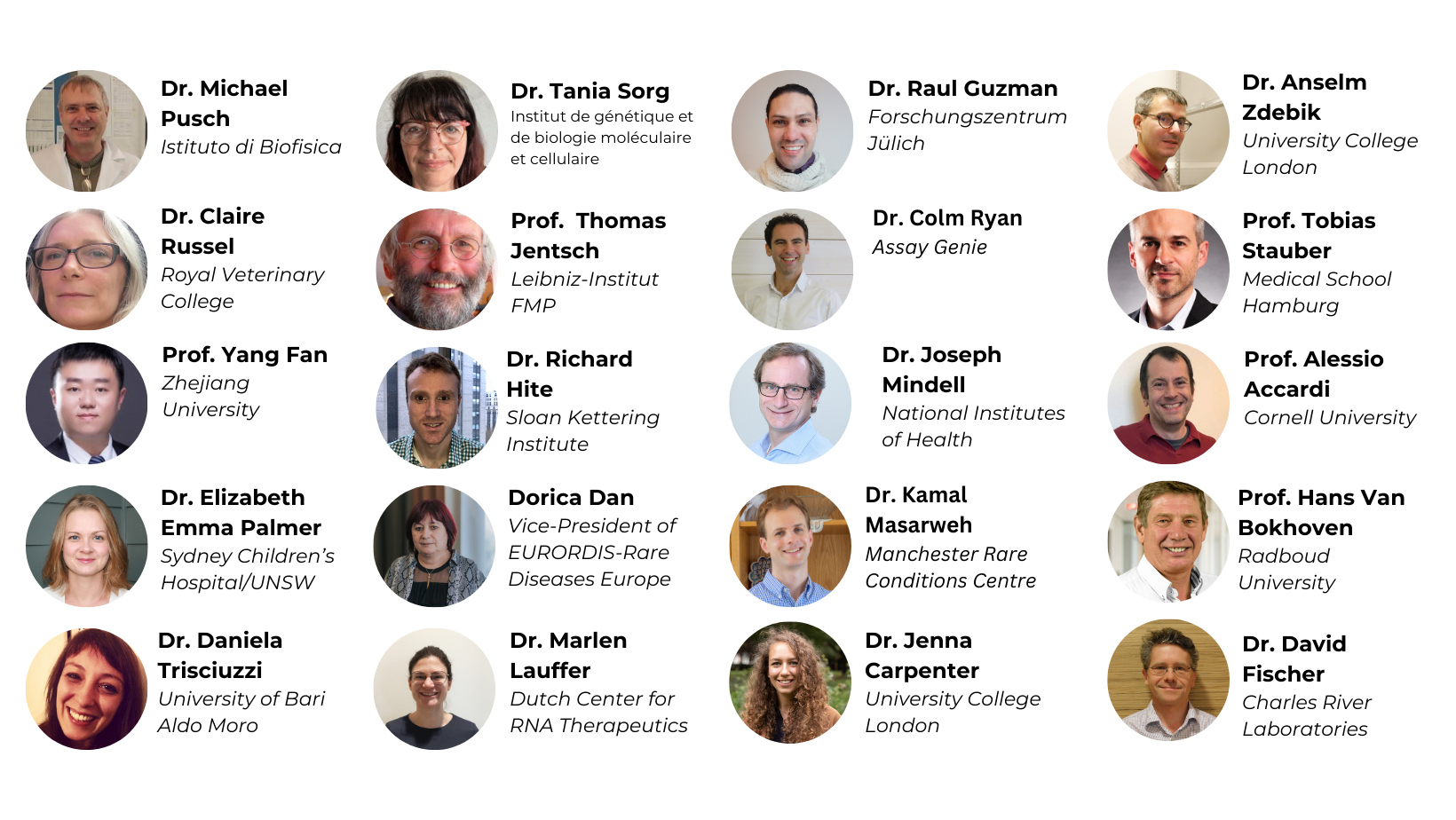
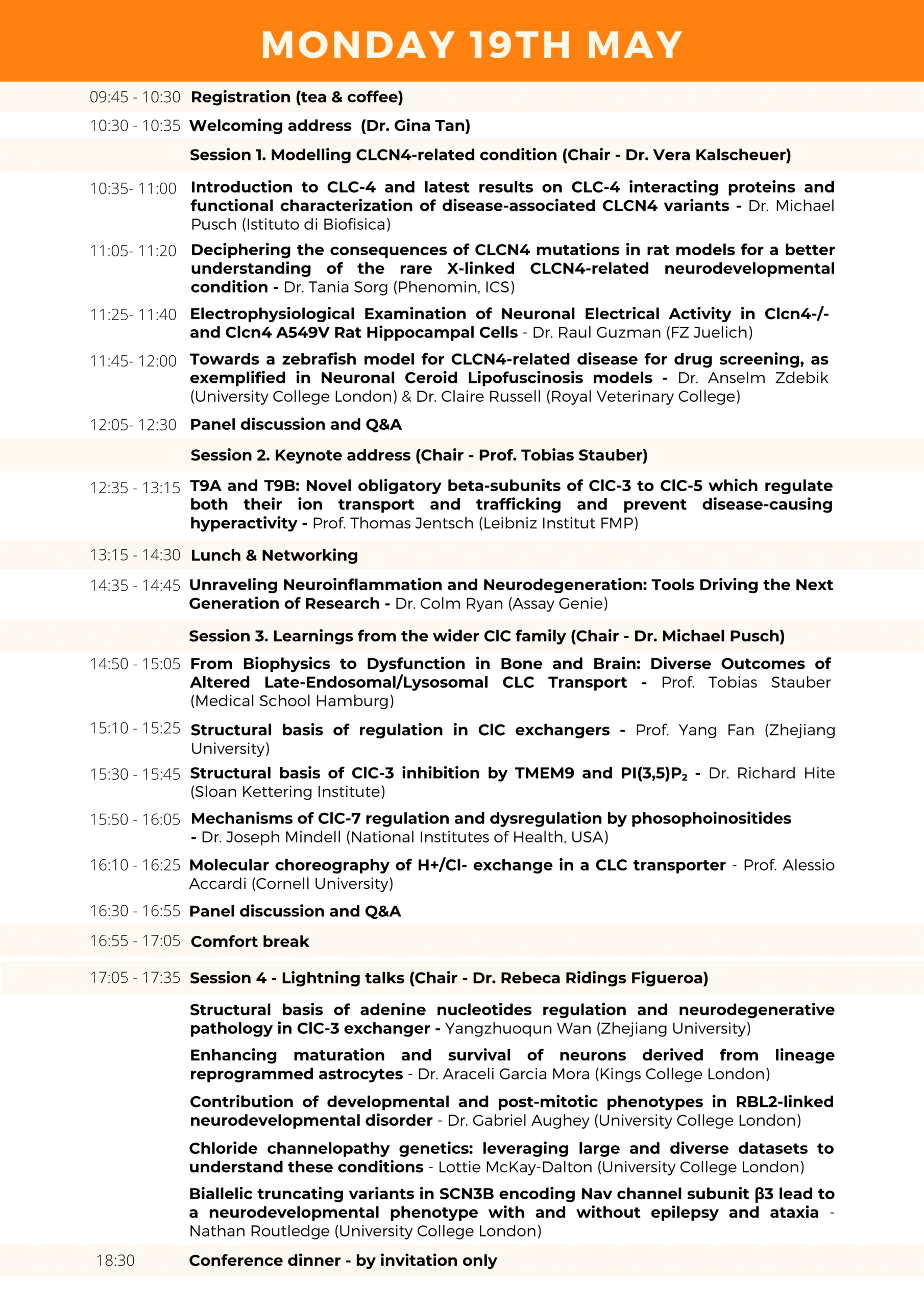
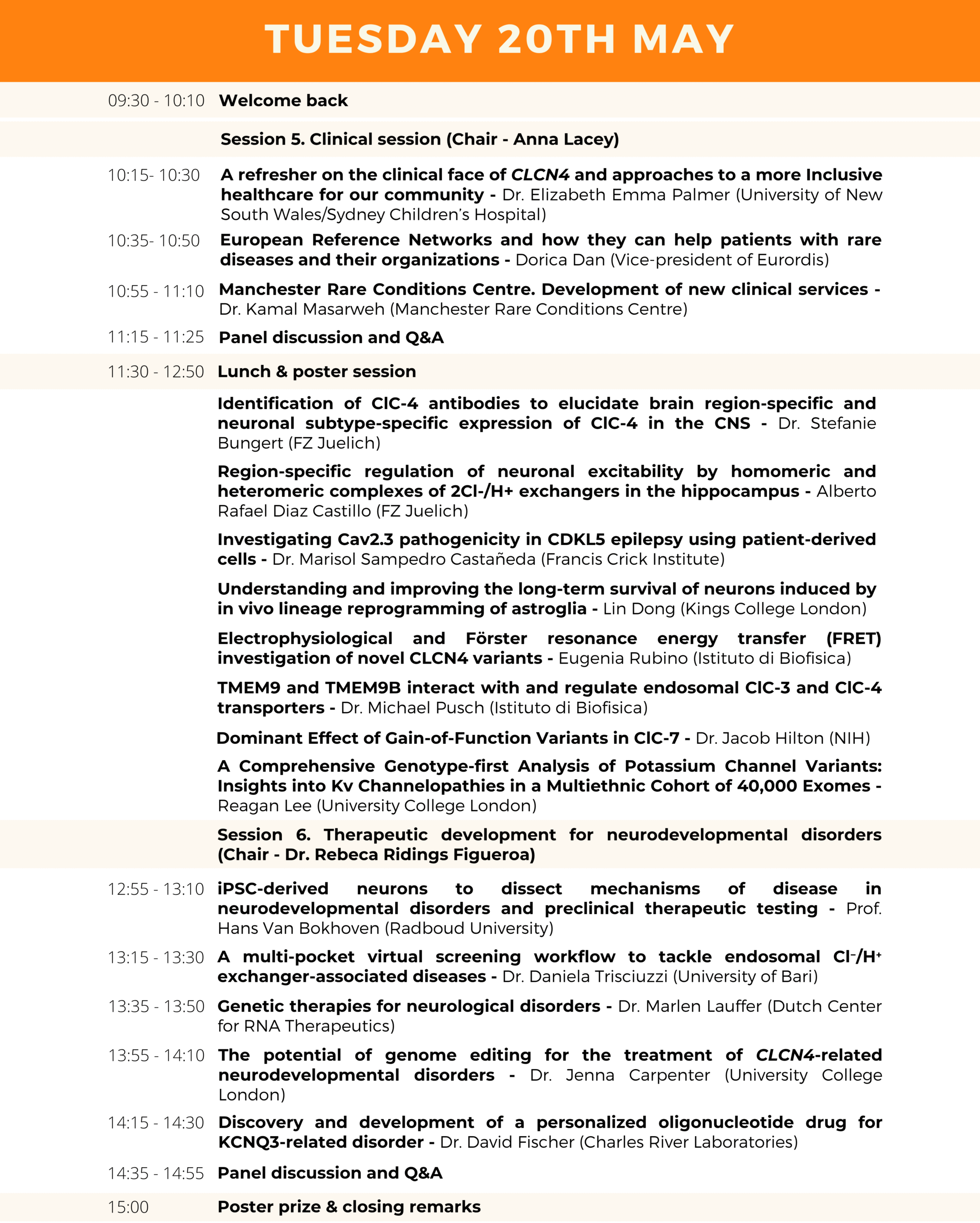
Opportunities for early-career researchers
The 2025 Cure CLCN4 Scientific Conference is dedicated to supporting the professional development of early-career researchers in the field of neurodevelopmental disorders. We are excited to offer exclusive sessions specifically designed for PhD students and postdoctoral fellows.
Lightning Talk Session – Monday, 19th May
Open exclusively to PhD students and postdocs, this session invites participants to deliver rapid-fire presentations. Each speaker will have five minutes to summarize their research findings and demonstrate their impact on the field.
Poster Session – Tuesday, 20th May
This session provides PhD students and postdoctoral researchers a platform to present their research in a visually engaging format. It offers a fantastic opportunity for detailed discussions, networking, and feedback from peers and established scientists in an informal setting.
Interested early-career researchers are encouraged to submit their abstracts for consideration. The deadline for abstract submission is 16th April. Please send your abstract (approximately 250 words) to info@cureclcn4.org
Conference description
CLCN4-related neurodevelopmental condition (CLCN4-NDC) is a rare X-linked genetic disorder that leads to intellectual disability and other problems such as epilepsy, behavioural disorders, movement disorders and microcephaly. CLCN4-NDC is caused by mutations in the CLCN4 gene, which encodes the ClC-4 protein, a 2Cl-/H+ ion exchanger expressed in intracellular compartments in a wide variety of tissues, but prominently in the brain and skeletal muscle. The extent and severity of CLCN4-related condition, which has so far been reported in just over 120 individuals worldwide, is very variable, depending on the type of gene change, the gender of the affected individual, the pathophysiological impact of the genetic change and, as yet, incompletely understood factors. Overall, there is currently little understanding of the basic biology of CIC-4 and no appropriate therapeutic options.
Now in its fourth instalment, the Cure CLCN4 Scientific Conference is set to reconvene in London, continuing its goal of providing the opportunity of the year for researchers and clinicians working on CLCN4-related condition and related areas to meet in person, network, and engage in in-depth discussions about the latest research and advancements in the field. Through short talks and panel discussions, we will explore the entire research spectrum, from fundamental animal and cellular model studies to the latest developments in clinical research, drug discovery, and precision medicine.
Thank you to our sponsors
Corporate Foundation Sponsors


